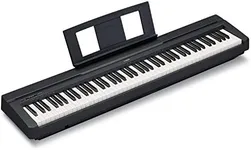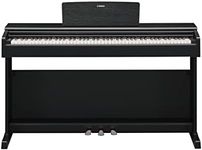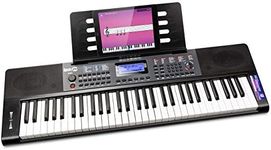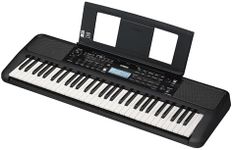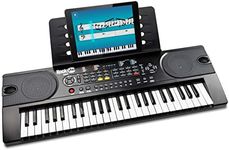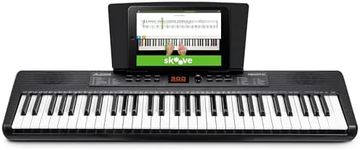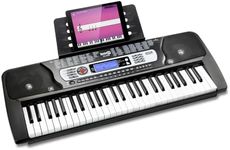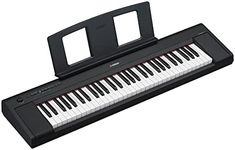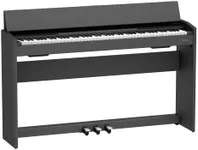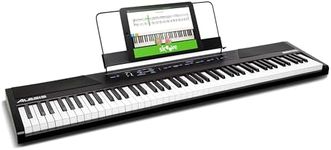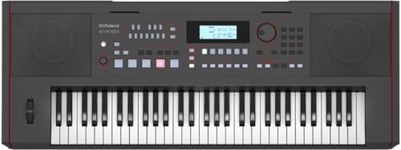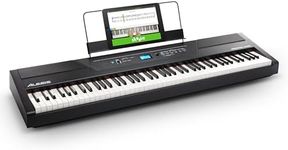Buying Guide for the Best Beginner Piano Keyboard
Choosing the right beginner piano keyboard is crucial for fostering a positive learning experience and developing a strong foundation in music. As a beginner, you want a keyboard that is user-friendly, offers a good range of features to explore, and is durable enough to withstand regular practice. It's important to consider the keyboard's size, sound quality, and additional features that can aid in learning. By understanding the key specifications, you can make an informed decision that aligns with your learning goals and preferences.Number of KeysThe number of keys on a keyboard determines the range of notes you can play. Full-sized pianos have 88 keys, but for beginners, a keyboard with 61 or 76 keys is often sufficient. A 61-key keyboard is more compact and portable, making it ideal for younger players or those with limited space. A 76-key keyboard offers a wider range, closer to a full piano, which can be beneficial as you progress. Consider your space, portability needs, and long-term learning goals when choosing the number of keys.
Touch SensitivityTouch sensitivity refers to how the keyboard responds to the force with which you press the keys. A touch-sensitive keyboard will produce louder sounds when you press the keys harder and softer sounds with a lighter touch, mimicking an acoustic piano. This feature is important for developing proper finger strength and dynamics in playing. Beginners should look for keyboards with adjustable touch sensitivity settings to match their developing skills and preferences.
Sound QualitySound quality is crucial for an enjoyable playing experience. It is determined by the quality of the built-in speakers and the sound engine. A keyboard with high-quality sound samples will produce more realistic and pleasing tones. Beginners should look for keyboards that offer a variety of instrument sounds and effects to keep practice sessions engaging. Listening to sound demos or trying out the keyboard in person can help you assess the sound quality.
PolyphonyPolyphony refers to the number of notes a keyboard can produce at once. Higher polyphony allows for more complex and richer sound, especially when using the sustain pedal or playing layered sounds. For beginners, a polyphony of 32 to 64 notes is usually sufficient, but as you advance, you might appreciate a higher polyphony for more intricate pieces. Consider your current skill level and the types of music you wish to play when deciding on polyphony.
Learning FeaturesMany beginner keyboards come with built-in learning features such as lesson modes, light-up keys, and connectivity to learning apps. These features can be incredibly helpful for self-teaching and keeping practice sessions fun and interactive. Look for keyboards that offer features that match your learning style and goals. If you prefer structured lessons, a keyboard with integrated tutorials might be beneficial, while those who enjoy experimenting might prefer a keyboard with a wide range of sounds and effects.
PortabilityPortability is an important consideration if you plan to move your keyboard frequently or have limited space. Lighter keyboards with fewer keys are easier to transport and store. Consider whether you need a keyboard that can run on batteries for outdoor or travel use. If you plan to keep the keyboard in one place, portability might be less of a concern, allowing you to focus more on other features like sound quality and touch sensitivity.
